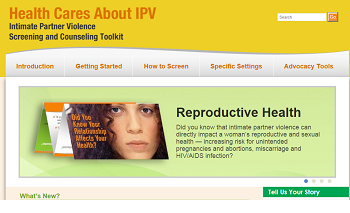The National Health Resource Center on Domestic Violence provides personalized, technical assistance to domestic and sexual violence advocates and to health care practitioners, administrators and systems, students, policy makers, and others at all levels as they improve health care's response to domestic violence.
Learn More




